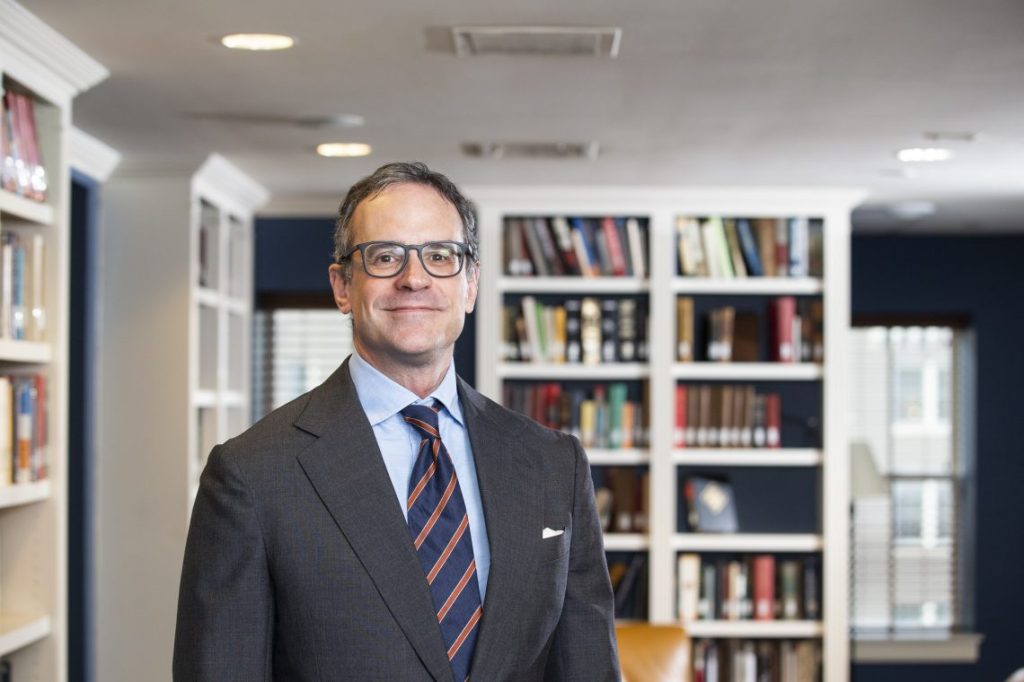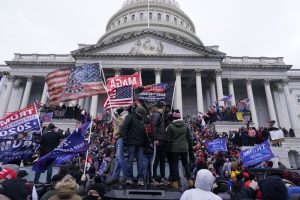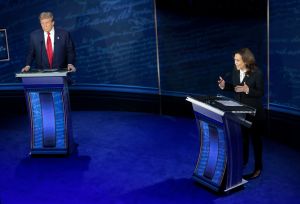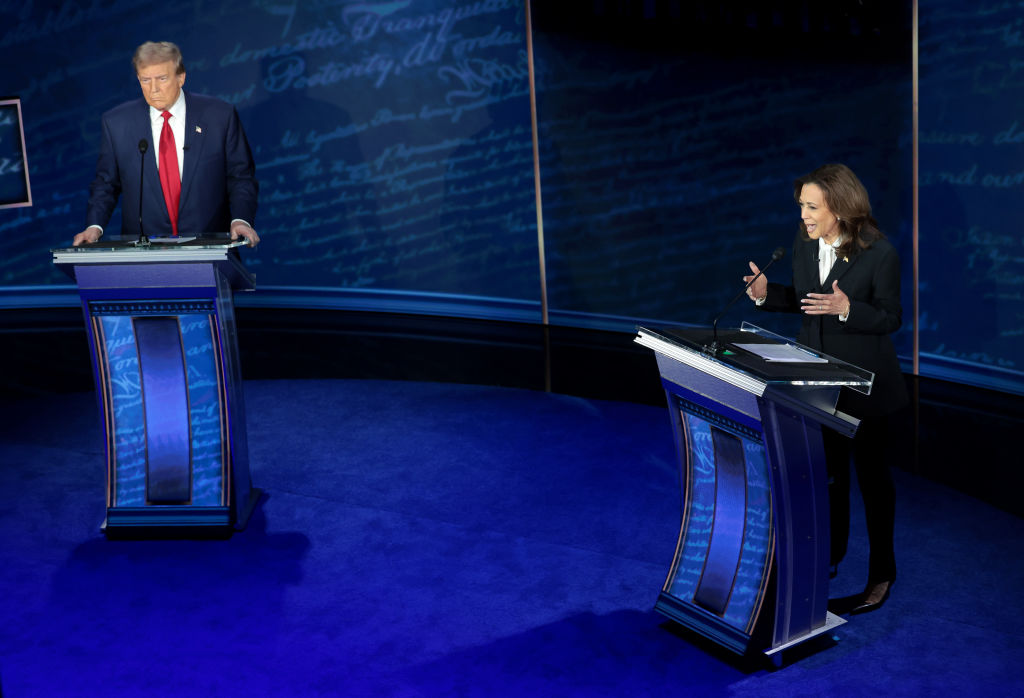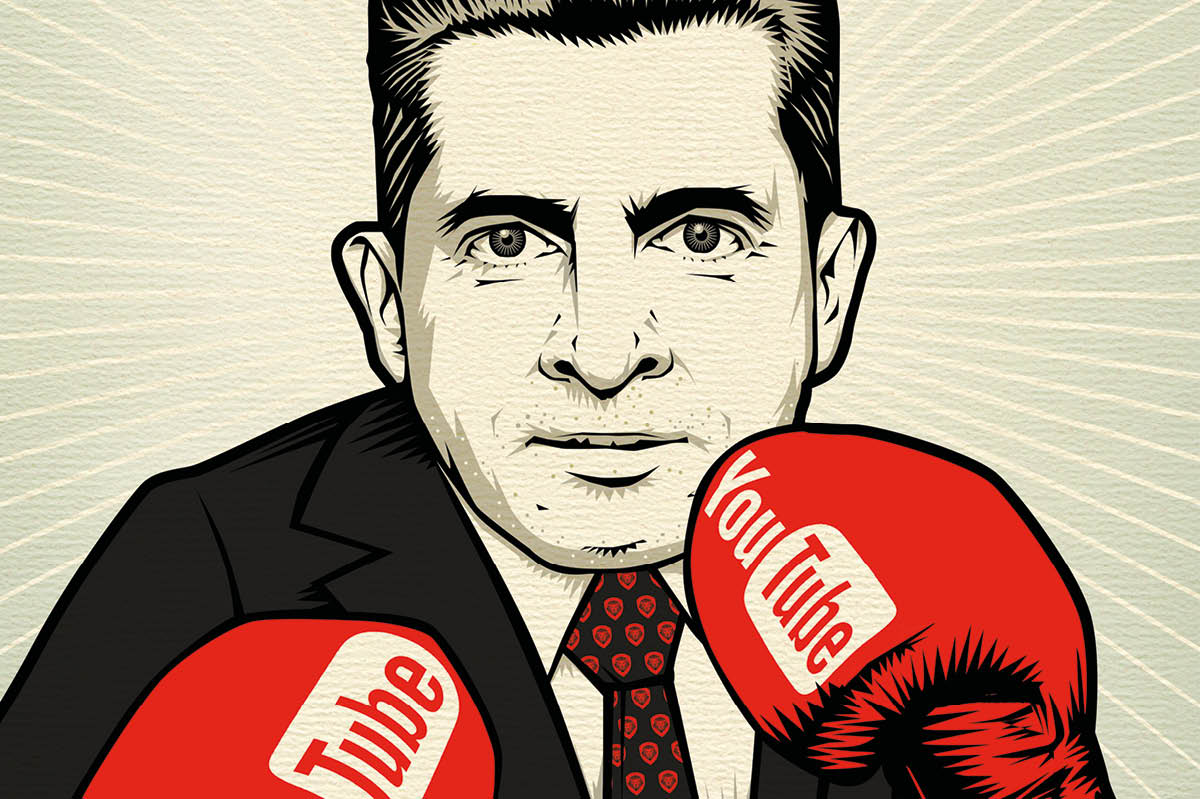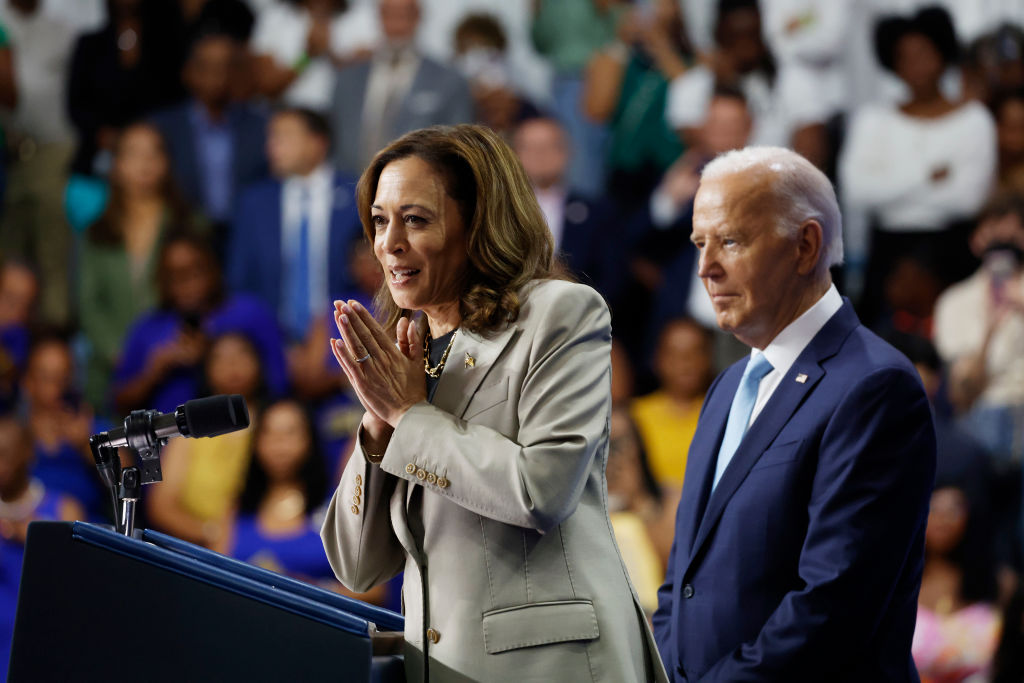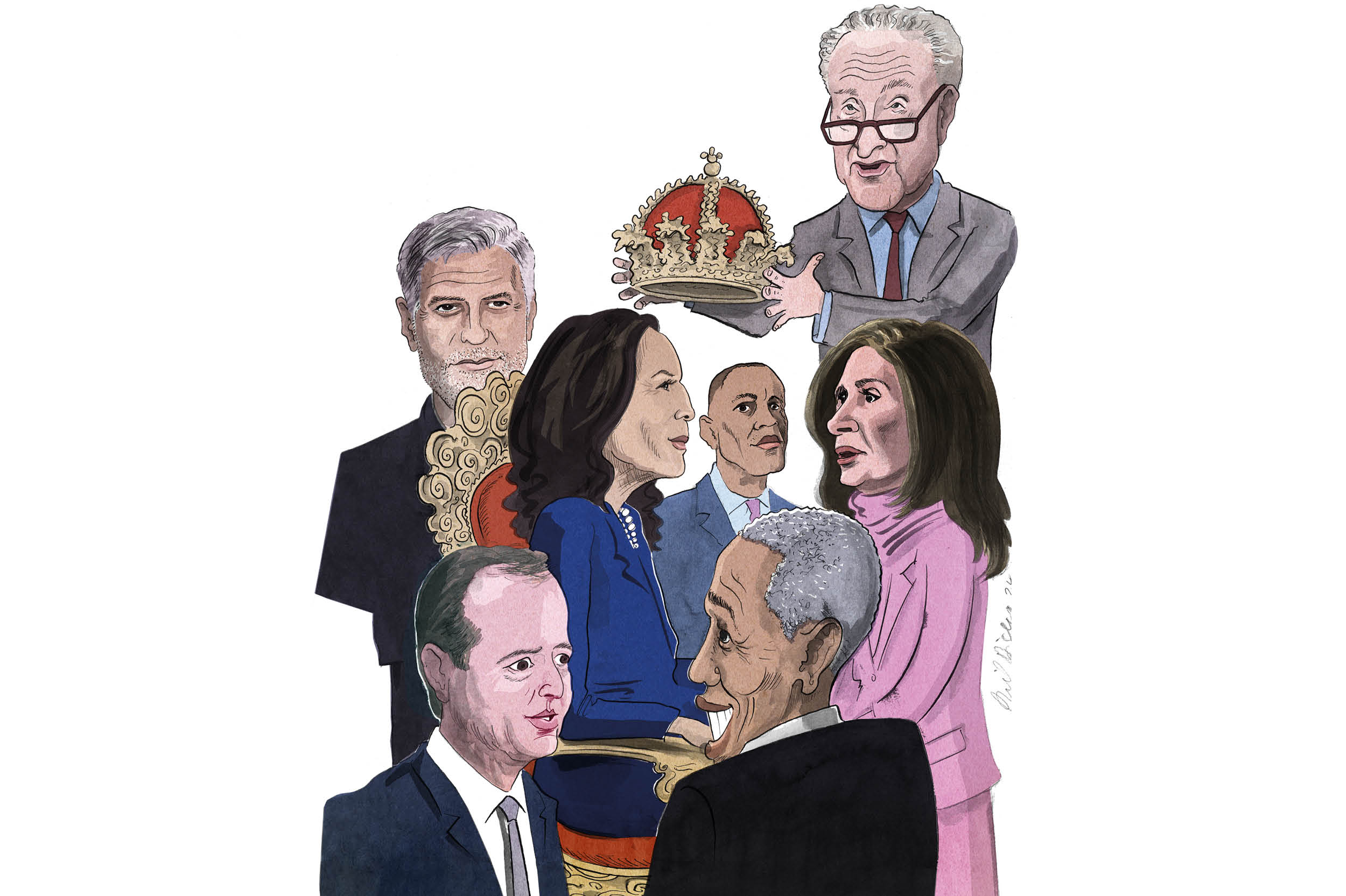Michael Anton was working in his small home office, almost four years ago to the day, when his wife came in and told him the news. Rush Limbaugh was reading it, on the air, right now. ‘It’ was his essay, a now notorious essay, a soon to be life changing essay, called ‘The Flight 93 Election’. Anton had published it, pseudonymously, with the Claremont Review of Books a few days before. Like any writer, he wanted people to read his work, but, like every writer, he wasn’t too surprised when he wasn’t read. ‘Flight 93’ was posted on Labor Day, a Monday, and did a little traffic. Tuesday: the same. Wednesday? Well, Rush Limbaugh read the whole thing out, all 4,257 words, for three hours, to 13 million people.
The Claremont Review website crashed. Anton had the essay hosted on American Greatness — then that website crashed. ‘So there was a period of five or six hours on that Wednesday when nobody could read the essay,’ Anton explains, ‘because it kept crashing every site that hosted it.’
But people did read ‘Flight 93’. That essay deployed the most strident metaphor in modern political writing. ‘Charge the cockpit or you die,’ Anton told Republicans, before adding another one. ‘A Hillary Clinton presidency is Russian roulette with a semi-auto. With Trump, at least you can spin the cylinders and take your chances.’
‘Flight 93’ remains a combative, stormy, iconoclastic, macho, mocking, midnight hour indictment of the American status quo, and the conservative movement, as it was in 2016. (It was possible, reading it, to think: this was it. Someone with a postgraduate education was doing it. This was the intellectual voice of Trumpism — entertaining and somewhat anxiety-making all at once.) Here was a style that dared you whether to take it literally or not. Its key metaphor also appalled many on the right, who thought it was in extraordinarily poor taste.
Trump won that November, which Anton, like most of the planet, didn’t see coming. American voters charged the cockpit. Anton entered it too, serving 14 months on the National Security Council. Today he is a lecturer and research fellow at Hillsdale College. I’ve called him to discuss his new book, The Stakes: America at the Point of No Return. As the title suggests, this is not a sunny read.
It opens with the story of California’s fall from middle-class paradise to woke-managerial dystopia. ‘I’m a profound lover of California, at least as it was,’ Anton, a native of the state, says. ‘It’s hard to love now, given the way its governed, in a way that is both incompetent and soft-tyrannical.’ He argues that this could be America’s future. He writes that ‘the state is grotesquely unequal, with a tiny number of winners taking virtually all the spoils while a serf class of immigrants, legal and illegal, do much of the work…and nearly all of the grinding toil.’ Saul Bellow once memorably described Chicago as ‘the contempt center of the USA’; for Anton it’s California, a state where the good has been driven out, and only the worst remains.
The book goes on and goes further into what has gone wrong. There’s a civics lesson on the American founding, a taxonomy of the ‘Ruling Class’ and the motivations of its followers, an analysis of the media and propaganda, a long chapter that attacks pro-immigration arguments and a national populist policy wish list. (‘If anybody in power wants to talk about how to put it into action, I’d happily talk to them,’ Anton says.)
By far the most striking interlude in the book comes in Chapter Seven. Anton describes his ruling class oligarchy in detail — the tech monopolists, the woke universities, the leftist foot-soldiers, the neoliberal economists, the sock-puppet Democratic leaders, the administrative state — and then games out what might happen if their project hits the wall. Contemplations range from the mild (continued geographical sorting along political lines), to the less mild (secession), to the apocalyptic (civil war). These are, to put it lightly, troubling scenarios. In recent days Anton has warned of another: that the Democrats might be plotting a coup in November.
‘Events move so fast. When I wrote the book I assumed this would be an election like any other election. I didn’t assume that the Dems would start openly talking about refusing to concede no matter what the tally was, that military officers would write an open letter to the joint chiefs calling for an active duty unit to remove the President from the White House.’
The increasing edginess around what might happen on election night is, for Anton, confirmation that the ‘constitutional order of the American Republic is not functioning’.
‘They’re openly plotting to remove the President regardless of the outcome of the election, and they’re simultaneously saying it’s him that’s plotting to steal the election. It’s the most brazen thing I’ve ever seen. It’s scary and dangerous. It makes any good outcome this fall that much more remote.’
Had the President, I thought, really played no role in this chaos? In 500 pages of The Stakes, Trump barely gets a look in — he is strangely absent, yet his presence is blatantly apparent, like an amputated limb. When Anton attacks his targets, he lambasts them, Trump-style. His positive case for the President is short, summed up when he writes, ‘There’s little wrong with President Trump that more Trump couldn’t solve.’
Yet after four years of Trump, America still appears to be in ‘Flight 93’ mode, as Anton puts it: ‘The country appears to be careening toward something very bad.’ What made him feel confident that Trump could stop the United States becoming Greater California?
‘All of the things that we need, all of the things that this country needs to get back on track, Trump is for and Biden is against.’ Anton seems fairly bemused by my line of questioning. ‘That doesn’t mean you’ll get all of these things if you vote for Trump. I do say in the book that the restoration of America — making it great again — is not a four, or an eight year project. It’s a generational project. But to get that going we need to win this election.’ Even then, Anton admits, MAGA will be ‘very difficult’.
I ask if Trump has the political capital and the organizational capacity to successfully pull it off — the immigration and healthcare reform, the new infrastructure, the face-off with China, civil service reform…
‘Well, look, he has the capacity to win the election and have a successful second term,’ Anton says. ‘But don’t think this is over by 2024, don’t expect American politics to go back to normal. I don’t expect the left to give up and go away. In a second term, all of the concentrated centers of power that I describe in the book will be as against the President as they are now, if not more so.’
In The Stakes, Anton writes that the left has become much more aggressive in the last four years. But wasn’t Trump part of this story too? Hadn’t his bracing, goading style summoned an opposition in his own image? Whenever Trump supported something he created a body of die-hard opinion against it. (That’s why so many Dems are now more libertarian than the Koch brothers on immigration.) What if anti-Trumpism — all the things Anton didn’t want for America, vigorously backed by what he considered to be the real centers of economic, cultural and political power — was the lasting legacy of this President?
Anton disagrees. The left of today has been trending this direction his entire lifetime. ‘Had Clinton won the 2016 election, my position is that we wouldn’t be going through this unbelievable summer. I think the left expected to win in 2016, and expected that power to be permanent. The desires of the left were all there, you could see what the left was in 2015, before Trump was in anybody’s mind as potential President.’ He admits that the ‘mass psychological break’ that they’re having wouldn’t have happened without Trump. ‘A little of the passion and fury and psychopathy is a reaction…but fundamentally it isn’t.”’
After Anton became known as the author of ‘Flight 93’, and especially when he was recruited to the Trump White House, he began to attract significant media attention. And opprobrium: Bill Kristol compared Anton to Carl Schmitt. ‘At the time I thought these attacks were feeble and stupid; my friends rallied round me, I wasn’t that worried about it.’
Still, arresting details continued to pile up. Anton had written a book on men’s attire called The Suit in the style of Machiavelli’s The Prince. He was a Francophile, a splendid cook, and a dandy. ‘The most interesting man in the White House,’ according to Yahoo News. He had worked there before, on George W. Bush’s National Security Council. He remembers the Bush White House as more orderly than Trump’s West Wing, ‘but almost more orderly to the point of obsession in a weird way. They had all these strict rules about who could stand where, and sit where.’ Under Trump things were more freewheeling. But ‘the media is much, much worse now than it was then.’ Anton doesn’t think he could do that job again.
[special_offer]
When he was younger Anton wanted to be a novelist, in the style of Tom Wolfe. He wrote Wolfe fan letters, and they met in the 2010s. What would Wolfe have made of this summer? ‘I often think about this. Mr Wolfe was a very optimistic person. He had a very upbeat, pleasant disposition. He tended to laugh at folly, even dangerous folly. If you read ‘Radical Chic’, the place to start with Wolfe, these are horrible things that are being discussed: street violence and revolution — and he laughs at it. I wonder if even Tom Wolfe wouldn’t be able to find the humor in 2020.’ ‘Well, it does seem more nihilistic,’ I say. ‘Yeah, I don’t know about you, but I’m not having fun with it.’ One thing almost makes him laugh — Joe Biden. “Has he even left the house in the last few months?” I ask Anton, a menswear encyclopedia, what he makes of Biden’s tailoring. ‘I suppose he wore a suit to that speech the other day…I only saw that one clip where he garbled his lines. It’s hard for me to watch this stuff to be totally honest.’



